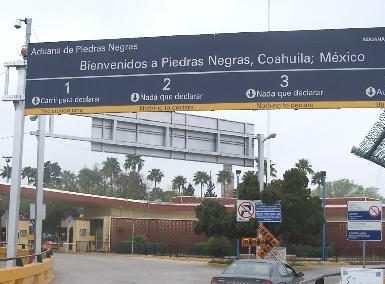Over 950 agricultural groups called for ratification of the United States-Mexico-Canada Agreement (USMCA) in a June 11 letter sent to Congress.
The USMCA is the successor accord to the 25-year-old North American Free Trade Agreement.
Agriculture groups argued the USMCA “will benefit the U.S. agriculture and food industry while providing consumers a more abundant supply of high-quality, safe food at affordable prices.”
The groups’ letter cites NAFTA’s positive impact on agribusiness. Ratified in 1994, NAFTA boosted food and agriculture exports to Canada and Mexico from $9 billion to nearly $40 billion by the time the USMCA’s initial agreement was okayed by President Trump, Canadian Prime Minister Justin Trudeau and former Mexico President Enrique Pena-Nieto.
One of the hold-ups in the process to ratify the USMCA was the threat of heightened tariffs on imports from Mexico that were proposed by President Trump last month. Trump called for a 5 percent tariff on all Mexican imports if the country did not crack down on Central American migrants traveling through Mexico on their way to the U.S. border. Trump backed off after the two nations entered into an agreement over migration, much to the relief of food and agriculture companies.
Western Growers, which represents companies in California and Arizona, responded to the administration’s decision to rescind tariff threats on imports from Mexico.
“Like NAFTA before it, the USMCA maintains zero-tariff treatment for all produce, a provision that led to the tripling of U.S. exports to Mexico over the past 25 years,” Western Growers President and CEO Tom Nassif said in a release. “Additionally, the USMCA contains favorable terms that will advance science-based sanitary and phytosanitary measures and strengthen Mexico’s labor standards.”
The Fresh Produce Association of the Americas also strongly supports adoption of the USMCA.
“Ratifying the USMCA is an important step in creating stability for the U.S. companies involved in trade,” FPAA President Lance Jungmeyer said in a June 12 news release. “This translates into increased jobs, economic growth, and direct consumer benefits as well.”
Some agricultural groups in Florida and Georgia, however, are lobbying Congress to amend the pact to limit the importation of fresh produce from Mexico by imposing duties on Mexican-grown goods at various times throughout the year.
Arizona U.S. Senators Martha McSally (R) and Kyrsten Sinema (D) and Ariz. Rep. David Schweikert and Texas Rep. Vicente Gonzalez (D) led a bipartisan letter of senators and representatives in urging the Trump administration to keep such a “seasonality” provision out of the USMCA.
The letter argues that such a provision could make certain agricultural products, such as tomatoes and bell peppers, subject to numerous seasonal and regional dumping duties and increase their cost to consumers throughout the year.
“Cross-border commerce with Mexico is critical to Arizona’s economy and workforce,” McSally said. “Any seasonality provision incorporated into the USMCA would negatively impact Arizona’s hardworking families with higher costs at the grocery store and dinner table. I have expressed my opposition to such a provision to the Administration and will continue to fight for Arizona jobs and families.”
The agreement is nearing final passage in Mexico. The measure to approve the USMCA is scheduled to be voted on in the country’s full Senate today.
“We will have a trade deal signed and ratified this very June,” said Ricardo Monreal, the Senate leader of the MORENA party, in a statement. “No fine print, nor negotiations or deals done in the dark between Mexico and the United States.”
Western Growers’ Nassif is urging the U.S. Congress to follow suit.
“With the threat of tariffs no longer standing in the way, as well as other early obstacles that have now been removed, the onus is on Congress to pass the USMCA, which we urge with the greatest expediency,” he said.
















Add comment